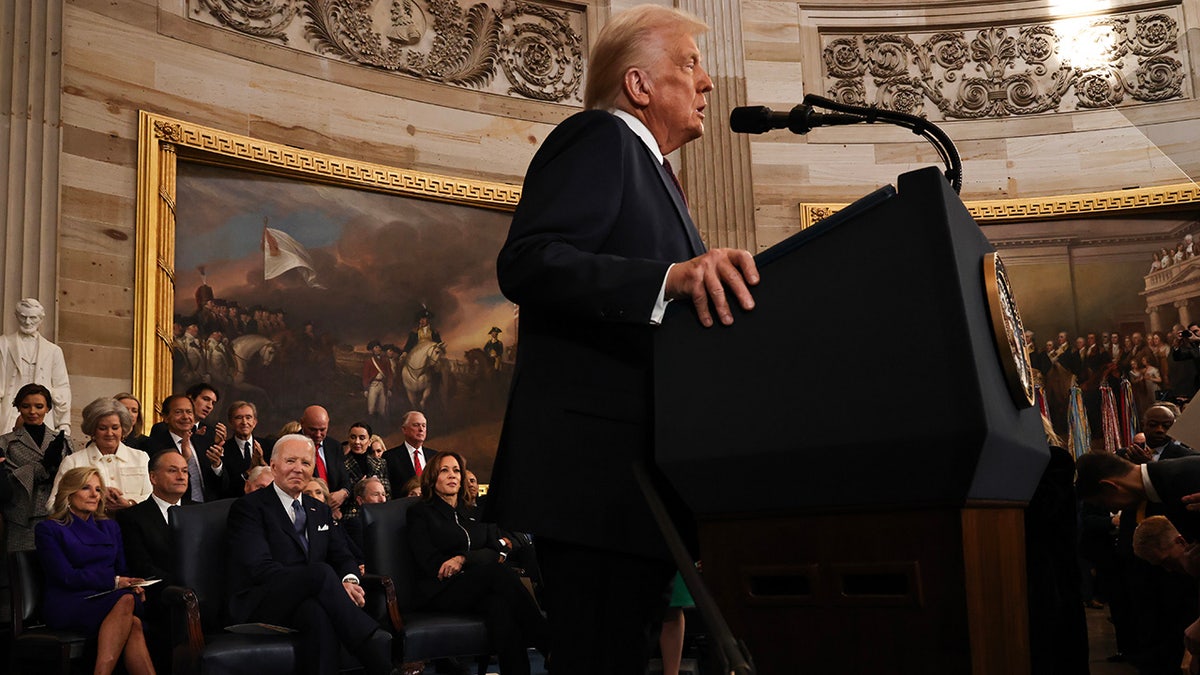On his inauguration day, President Trump announced significant changes to U.S. immigration policy, focusing on border security and enforcement. These pronouncements set the stage for potential clashes with political opponents and advocacy groups.
In his inaugural address, Trump reiterated campaign promises to secure the southern border and initiate deportations. He declared a national emergency at the border, stating his intention to halt illegal entries and deport millions of individuals deemed criminal aliens.

Trump's planned actions include deploying military personnel to the border, reversing existing parole policies, continuing border wall construction, and classifying international cartels as terrorist organizations. He also intends to end birthright citizenship for children born to undocumented immigrants, pause refugee resettlement programs, and implement a streamlined removal procedure that bypasses asylum claims. This involves reinterpreting the 14th Amendment to exclude children of undocumented immigrants from automatic citizenship.

Further measures include reinstating the "Remain in Mexico" policy, discontinuing the "catch-and-release" practice, and utilizing the Alien Enemies Act of 1798 to empower law enforcement agencies to target foreign gangs and criminal networks operating within the United States.

Trump emphasized his commitment to addressing illegal immigration as a core element of his presidential agenda, citing it as a key concern for voters during the 2024 election. He highlighted growing bipartisan support for stricter immigration enforcement measures, including the mandatory detention of specific categories of undocumented immigrants.
Comments(0)
Top Comments